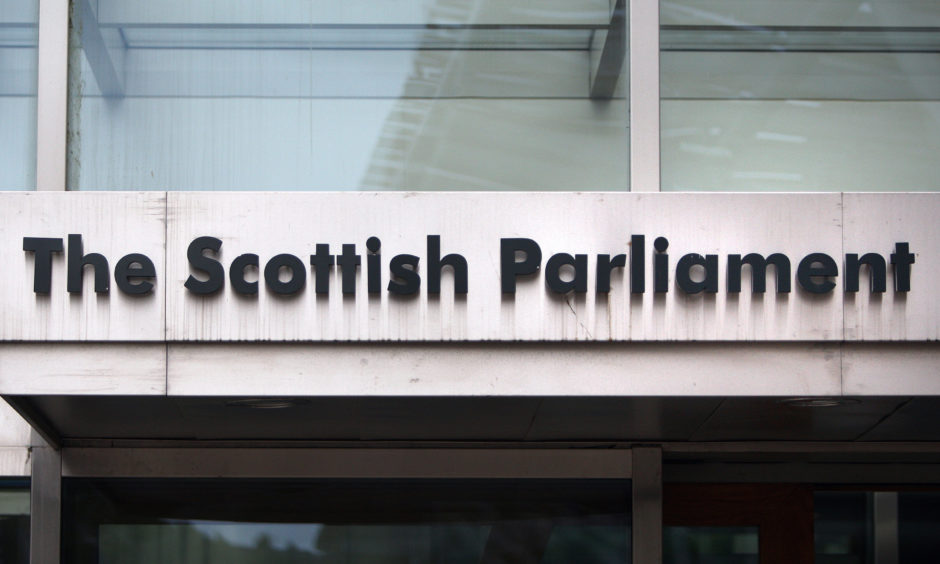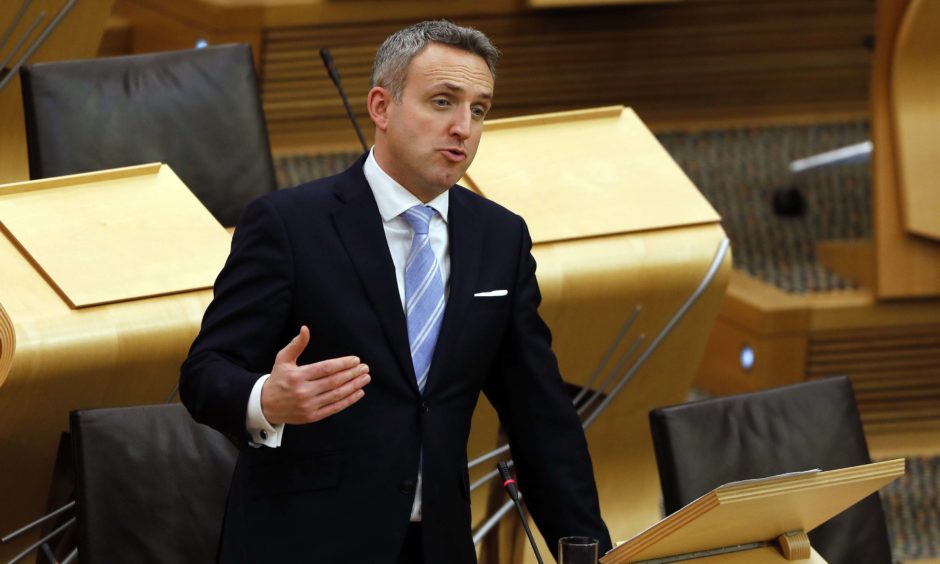A “quite extraordinary” number of concerns was raised about Scottish Government ministers’ behaviour and officials still have issues with the inappropriate conduct of senior politicians, MSPs have been told.
MSPs investigating the Scottish Government’s botched handling of harassment claims made against Alex Salmond were given an insight into the working environment at the top of the Scottish Government.
One MSP remarked that the Scottish Government “sounded like a horrible place to work” after hearing from trade union officials representing the civil servants who worked alongside ministers.

Dave Penman, general secretary of the FDA, had already told the Salmond inquiry that civil servants were concerned about bullying behaviour in the former first minister’s office in a written submission to the Holyrood committee conducting the investigation.
Giving evidence to MSPs on the committee in person, Mr Penman said 30 officials had raised concerns about Scottish ministers’ behaviour over the last decade, a “remarkable” number when compared with the civil service elsewhere in the UK.
Mr Penman also revealed concerns about inappropriate behaviour remained today, three years after new anti-harassment procedure was introduced in the wake of the #MeToo movement.
What else was learned when the Committee on the Scottish Government’s Handling of Harassment Complaints met for the third time?
A ‘quite extraordinary’ number of concerns expressed about ministers
Mr Penman said around 30 members of staff had raised concerns or complaints about Scottish ministers over the last decade, a figure that was far in excess of other parts of the UK civil service, where there had only been “a handful”.
In the last 10 years, he said there had been “approaches on behalf of around 30 members in relation to at least five ministerial offices”.
He also said the number could be higher and suggested senior members of the government knew about the harassment concerns.
I would be aware over a similar period for the rest of the UK civil service of probably a handful of incidences that came to the union, which is why for us it felt quite remarkable in terms of numbers.”
Dave Penman, FDA union
Questioned by the Lib Dem MSP Alex Cole-Hamilton, Mr Penman said there was “no doubt” that more concerns were dealt with informally. But he added that it was “impossible” to know whether the 30 cases the FDA was aware of were the tip of the iceberg.
Comparing the figure of 30 with elsewhere, Mr Penman, whose union represents senior civil servants, said: “I would be aware over a similar period for the rest of the UK civil service of probably a handful of incidences that came to the union, which is why for us it felt quite remarkable in terms of numbers.”
Mr Penman said the figure of 30 referred to concerns, which were not necessarily converted into formal complaints, and admitted it was “not empirical evidence” but said the number “does seem quite extraordinary”.
He added that his perception was the people were talking about their concerns with the union on the basis that “they didn’t feel confident” of taking their complaint to the next stage.
Later, in response to Conservative MSP Murdo Fraser, Mr Penman suggested the extent of the concerns could point to a cultural problem in the workplace.
“I think the numbers are pretty dramatic on their own,” he said. “It’s probably not beyond the realms of possibility that the number of individuals with concerns would be much broader than that.
“It does seem to us (that) the numbers of people raising concerns in the Scottish Government are so significantly greater than we’re aware of elsewhere, it suggests something in particular over the longer term has happened.”
Mr Penman said complaints had involved administrations prior to the SNP coming to power in 2007.
Suggesting that senior members of the government probably knew about cases of bullying and harassment, he said: “If you look at the number we’re talking about over a decade, it seems to me that people in the Scottish Government were probably aware that there were issues. You can’t look at that number of concerns and say that everyone thought everything was fine.”
A claim that concerns over ministers’ behaviour remain
MSPs heard that the FDA still has concerns about ministers’ conduct, despite the upgrading of an anti-harassment policy. Previously the committee has focused on the development of a new Scottish Government harassment policy in 2017/18. This was the policy under which Mr Salmond was subjected to an internal Scottish Government investigation, which he later challenged successfully in court.
The new process controversially included provision for “former ministers” to be investigated, a departure from the old policy.
It is quite clear, from our perspective, that the issues we are talking about here are extant in relation to the issues of conduct of ministers and approach of civil servants.”
Dave Penman, FDA
But, according to Mr Penman, the new policy had not managed to solve problems with ministers’ behaviour.
“We would not say that people still have confidence in the process for dealing with complaints; we would indicate that the issues that we talk about are not historical. They are current in relation to this,” Mr Penman said.
“Therefore, that can only be a failure of how that policy has been applied. Whether that’s about individuals, whether that’s about a broader culture, whether that’s about the responsibilities of those who are ultimately in the most powerful positions setting a tone for how these things are dealt with. It is quite clear, from our perspective, that the issues we are talking about here are extant in relation to the issues of conduct of ministers and approach of civil servants.”
A lack of confidence in the system and claims of a culture of fear
In written evidence the FDA had said some civil servants complained of working in a “culture of fear” and were “unable to speak truth unto power”, a suggestion that had been denied by permanent secretary Leslie Evans.
Mr Penman said there were cultural issues through a number of administrations “not simply about the former First Minister (Mr Salmond) but other ministers as well”.
He suggested that created a concern that people did not feel issues would be addressed even though there was a mechanism to look at them.
“Clearly those in positions of management in the Scottish Government, as we have seen from the evidence from previous permanent secretaries, were aware of some of that,” Mr Penman said.
“Whether they were aware of all of it, whether they joined the dots… is a matter for them to give evidence about.
“For us, in hindsight, we think that has raised issues about broader culture and that if members are saying what they are saying to us – which is that they didn’t feel confident about raising concerns, and that those would be dealt with and addressed – then that’s a very real experience that we’ve got.
“If that conflicts with what an employer – whether it’s the permanent secretary or previous permanent secretaries say – that is not a surprise, I suppose I would say.”
Mr Cole Hamilton said the Scottish Government sounded “like a horrible place to work where effectively there was a group of ministers who were ranging around as untouchable, all-powerful villains”.
Mr Penman objected to the Lib Dem’s use of language and said he didn’t recognise the picture Mr Cole-Hamilton was painting. But the union official said there had been “a reluctance to challenge inappropriate behaviours” of ministers that had built up over many years. He assumed this had become “learned behaviour”, because it had not been tackled.
The need for ministers to be divorced from the anti-harassment process
Mr Penman said politicians should not be charged with “marking their own homework” when it came to complaints against them.
The committee heard about work more than a decade ago to change harassment policies, which had been referred to Mr Salmond by the then-permanent secretary, Sir John Elvidge.
Mr Penman confirmed that unions had tried to influence the work, carried out in 2008/2010, because concerns had been raised about the conduct of “multiple ministers” in “multiple administrations”.
Tory MSP Margaret Mitchell referred to a document obtained under Freedom of Information that looked at the interaction between the government and unions about the new policy.
Ms Mitchell recalled that unions had argued against a situation that would see “ministers investigate ministers”.
“Taking cognisance of that the permanent secretary (Elvidge) then went to the first minister (Salmond) to look at these policies. Was that appropriate if the first minister may have been the subject of these complaints?” Ms Mitchell asked.
Mr Penman said: “Ultimately the people who have to sanction at times, who have the authority around proving the policy and procedure, are the people you might have to apply to and it is very difficult to separate those issues. It is one of the difficulties around any policy and one of the reasons we believe there should be a wholly independent process.”
Mr Penman said Boris Johnson’s handling of bullying claims against Home Secretary Priti Patel demonstrated the need for an independent process.
“We need independence of investigation, independence of decision making and, critically, we need transparency around the process,” he said.
“As we’ve seen in relation to the Home Office investigation, it has laid bare the inadequacies and potential conflicts of the current position where the prime minister stood up in parliament, said he was backing the Home Secretary before an investigation had even been conducted, knowing that the investigation would come to his desk to make a decision.”

